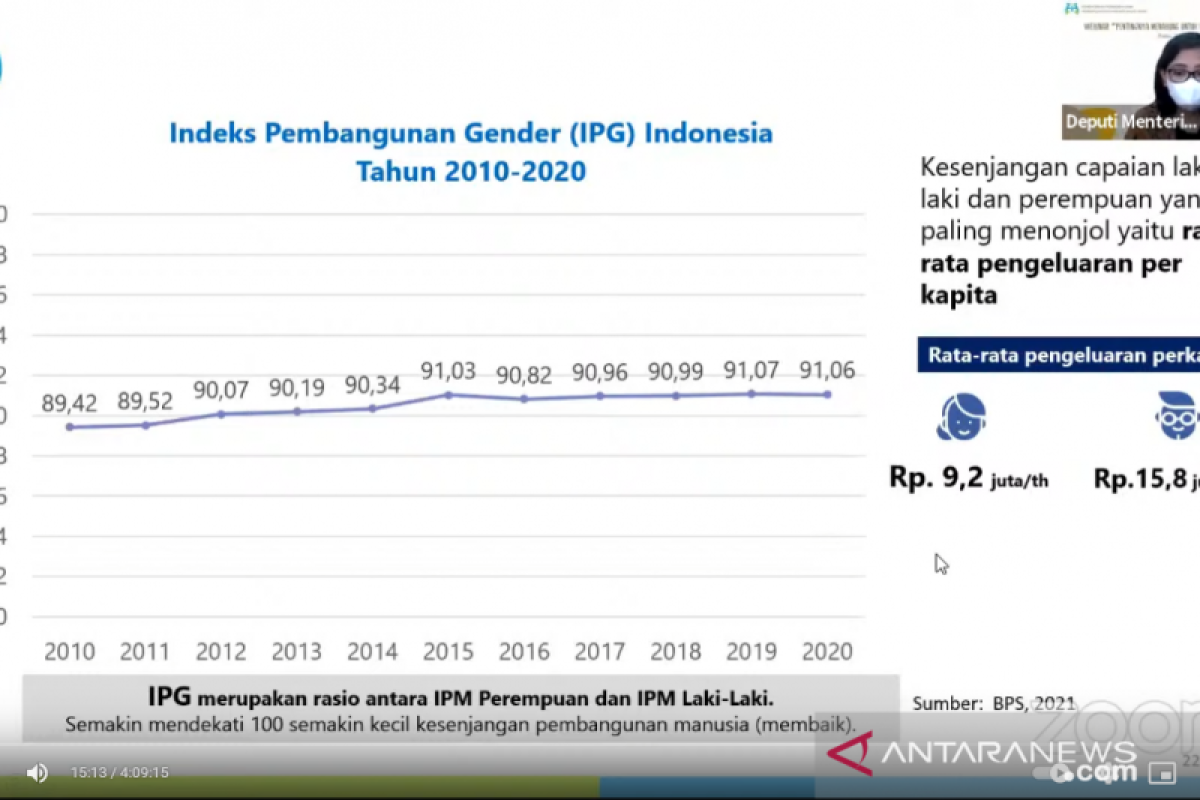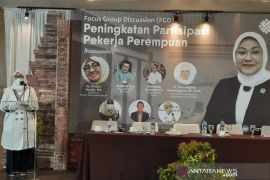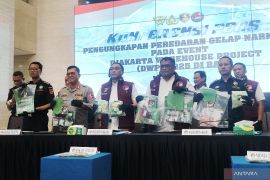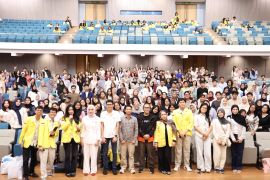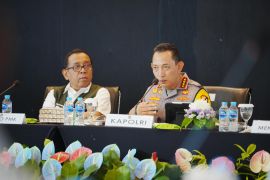Indonesia Development Index's (IPM's) data shows that women's prosperity rate increases from time to time, but the gender gap remains, Rosalin pointed out.
This means a gap still exists between women and men in terms of education, health, and economy as variables that form the IPM.
The Gender Development Index (IPG) also indicates a similar trend, with the biggest gap in IPG that came as a result of differing average spending per capita between men and women, Rosalin noted.
Women's average spending per capita reached Rp9.2 million per year, while men's average spending per capita is Rp15.8 million annually, she pointed out.
Related news: Indonesian women talent pool database has to be formed: Researcher
The persistent gender gap became the background for the unveiling of the Women Inclusive Finance National Strategy (SNKI), the deputy noted.
"Why Women SNKI exists? It is because we want to close this gap, so that women can become equal to men," she emphasized.
The Women SNKI was unveiled on June 9, 2020, in order to ensure that all women have the requisite knowledge, skills, resources, and opportunity to achieve economic empowerment.
Women's Empowerment and Child Protection Minister Bintang Puspayoga was appointed to become one of the members of the Inclusive Finance National Board.
It is expected that applying the inclusive finance national strategy could reduce the gap between genders, cities and villages, as well as the poor and rich.
During the webinar, Rosalin also stressed that women and children should understand the importance of saving for the sake of the family's prosperity.
Related news: Supreme Court ensures women's, children's rights in case settlements
Related news: Women's economic empowerment needs joint synergy: minister
Translator: Anita Permata Dewi, Fadhli R
Editor: Suharto
Copyright © ANTARA 2021
